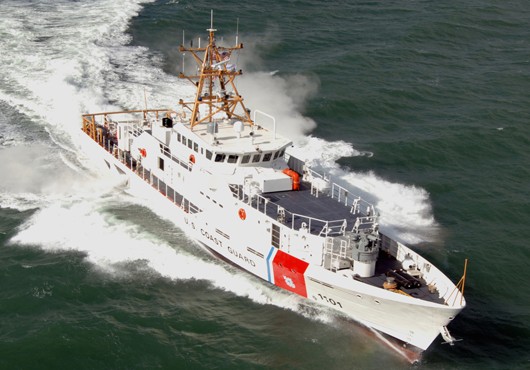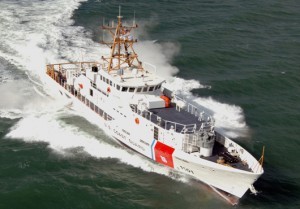The Harsh Reality of US Coast Guard Migrant Policy
by John Konrad (gCaptain) When merchant and cruise ships rescue migrants at sea, they offer more than just a lifeline from the perilous waters; they provide critical sustenance and care....


Coast Guard and Maritime Transportation Act of 2012 (H.R. 2838) Signed Into Law by President Obama


House Transportation and Infrastructure Committee Release:
Washington, DC – Legislation to provide the U.S. Coast Guard with the capabilities necessary to carry out the service’s maritime safety, illegal drug and migrant interdiction, homeland defense, and other important missions has been signed into law by the President.
The bill, introduced in the House by Transportation and Infrastructure Committee Chairman John L. Mica (R-FL) and Coast Guard Maritime Transportation Subcommittee Chairman Frank LoBiondo (R-NJ), will also provide common sense Coast Guard reforms and reduce regulatory burdens on small business and port workers.
“The Coast Guard is our nation’s first line of defense for maritime safety and security,” Mica said. “This law ensures the exceptional men and women of the Coast Guard will be provided the resources they need to carry out their important work. The measure also rejects cuts to the Coast Guard acquisitions budget and the number of servicemembers proposed by the President earlier this year, and allows the service to continue improving mission critical ships, aircraft and communications systems.
“This measure also reduces regulatory burdens on fishermen, small businesses, and port workers, and follows up on Committee Republicans’ 2010 ‘Sitting on Our Assets’ report by requiring a decision to either reactivate or decommission the Coast Guard’s currently sidelined heavy icebreaker,” Mica said.
“In addition to laws enacted this Congress to reform and renew federal surface transportation programs, the Federal Aviation Administration, pipeline safety programs, and other measures, this Coast Guard bill adds to the Committee’s accomplishments this Congress in improving and strengthening federal transportation and infrastructure programs,” Mica added.
The Coast Guard and Maritime Transportation Act of 2012 (H.R. 2838), signed into law by the President on December 20, 2012, authorizes $8.6 billion in fiscal year 2013 and $8.7 billion in fiscal year 2014 for the activities of the Coast Guard.
The bill includes provisions that will give the Coast Guard, its servicemembers and dependents greater parity with their counterparts in the other Armed Services. The bill further aligns Coast Guard’s authorities with those granted to the Department of Defense.
H.R. 2838 also enhances operations while reducing costs by reforming and improving Coast Guard administration and eliminating obsolete authorities. The bill recognizes the current budget environment and saves taxpayer dollars without impacting the service’s critical missions.
Furthermore, the bill encourages job growth in the maritime sector by reducing regulatory burdens on small businesses. The regulatory relief provided by this bill includes eliminating the Transportation Security Administration (TSA) requirement for maritime workers to make multiple trips to a Transportation Worker Identification Credential (TWIC) enrollment center to receive the TWIC ID card; extending deadlines for compliance with new Coast Guard regulations on fishing vessels to ensure the service can enforce them fairly and properly; and extending the duration of medical certificates so mariners can continue to work while the Coast Guard reduces its backlog of applications.
H.R. 2838 also extends for an additional year the current moratorium for fishing vessels and small commercial vessels’ compliance with tangled and bureaucratic EPA regulations governing vessel incidental discharges, such as rain water runoff and air conditioner condensate.
Finally, the bill enhances the security of U.S. vessels and crew transiting high risk waters, reauthorizes the national security aspects of the Maritime Administration for fiscal year 2013, and makes several important improvements to NOAA’s marine debris program.
Join the gCaptain Club for curated content, insider opinions, and vibrant community discussions.


Join the 105,937 members that receive our newsletter.
Have a news tip? Let us know.
Access exclusive insights, engage in vibrant discussions, and gain perspectives from our CEO.
Sign Up




Maritime and offshore news trusted by our 105,937 members delivered daily straight to your inbox.



Essential news coupled with the finest maritime content sourced from across the globe.
Sign Up